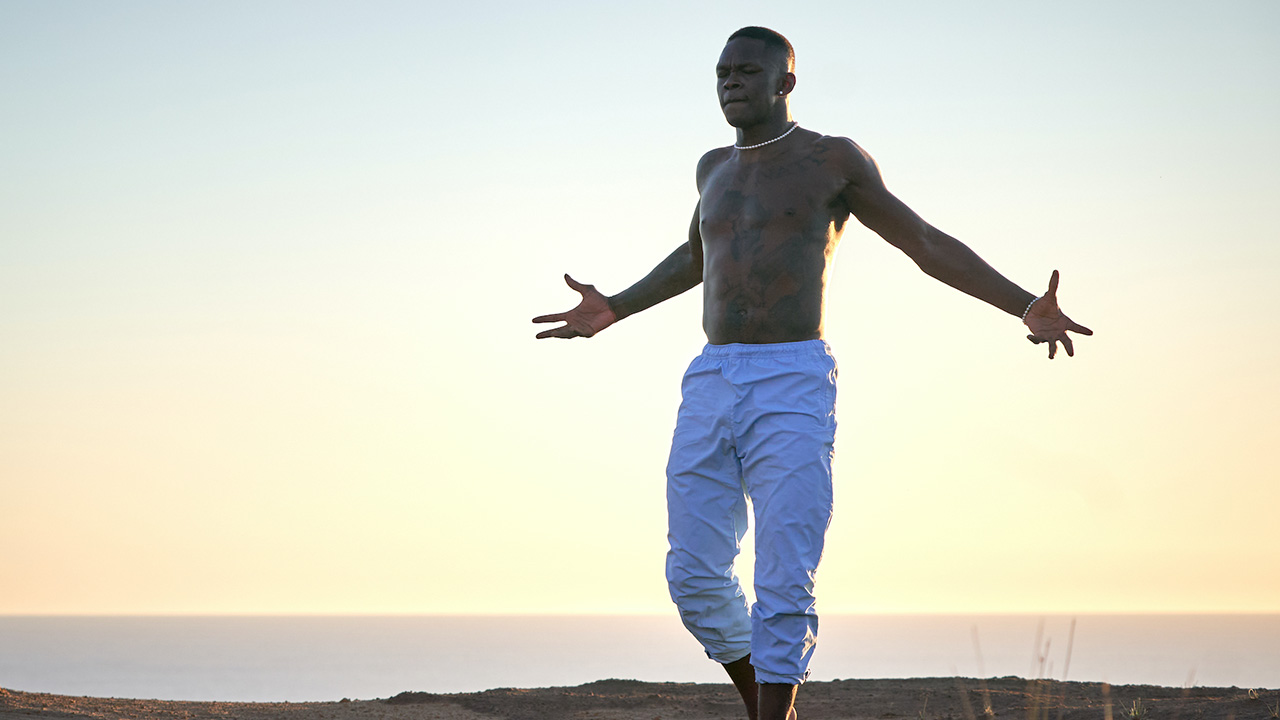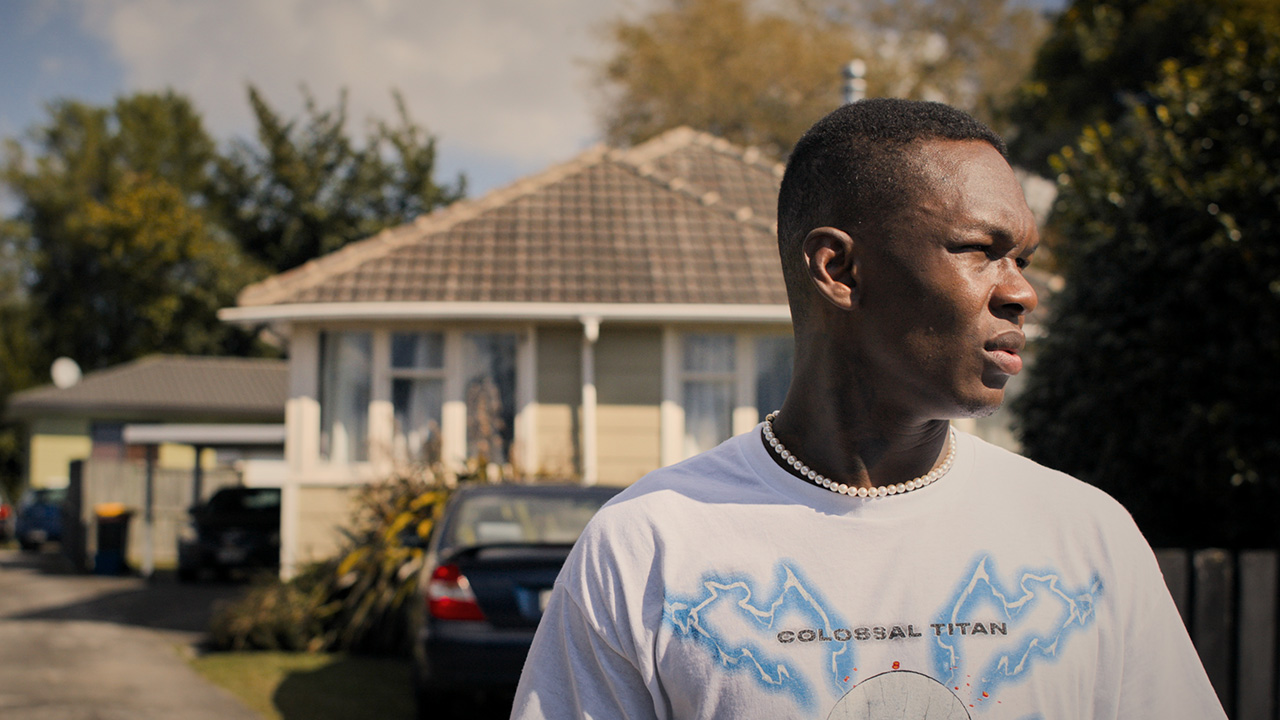Stylebender might be New Zealand’s most open-hearted sports doco ever

Israel Adesanya is an out-of-this-world fighter who is as complex as he is powerful. Director Zöe McIntosh (Dark Tourist) delivers a portrait of the MMA champion in Stylebender, a sports documentary that feels like the most open-hearted and emotionally confronting one ever produced in Aotearoa, writes Liam Maguren.
Stylebender
New Zealand’s an over-achieving sports-mad nation that honours its biggest victors with the reverence of royalty. Some of those victors are stoic men, like All Blacks legend Richie McCaw and IndyCar World Champion Scott Dixon, who keep a tight lock on their emotions and mentality to the benefit of their performance. It’s also why their respective documentaries, 2016’s Chasing Great and 2018’s Born Racer, feel so frustratingly impenetrable, neither subject seeming to want—or be able—to open up to the filmmakers.
So it’s a credit to both Israel Adesanya and director Zöe McIntosh that Stylebender, a compellingly in-depth observation of the Nigerian-born MMA champion from Rotorua, feels like the most open-hearted and emotionally confronting sports biopic ever produced in Aotearoa. Uninterested in printing the legend, McIntosh’s film explores the person and the trauma that created the legend, with Adesanya’s willingness to grant the director access proving vital.
McIntosh spent five years following Adesanya, managing to capture his rise to UFC glory as well as his out-of-the-cage persona that makes him such a fascinating athlete in a sport renowned for its masculine showboating. In an interview, she told me: “I couldn’t resist this delicious combo of a very macho fighter who was also in touch with his feminine side, explores therapy, dances, and gets his nails done. On a surface level, there were great contrasts.” It’s this exploration of contrasts that makes Stylebender a standout.
In a bold and commendable move on Adesanya’s part, McIntosh and her crew are invited to observe his therapy sessions as he dives mind-first into past trauma. Sometimes gentle, sometimes full-on, these powerfully frank discussions about childhood bullying do a lot to illustrate the man he is today (and a little about this country’s societal problems). Much like the 2013 Jonah Lomu biopic Anger Within and 2022’s Dame Valerie Adams: More Than Gold, this backstory proves vital in understanding the athlete’s drive, but through these sessions, Stylebender goes a step beyond by immersing the viewer in the man’s mentality.
When it comes to Adesanya’s physicality, trainer Eugene Bareman offers a valuable perspective on the champ’s many talents and some stubborn flaws. As perhaps the most qualified man in the world to connect Adesanya’s character to his ability in the ring, Bareman’s chats to the camera combine expertise with honesty, two qualities desperately needed when the pair’s various quarrels with each other come into question.
Stylebender seamlessly integrates Adesanya’s fights with the narrative it weaves. One particular faceoff against a bully-like adversary builds the kind of tension that knots the gut especially if you’re a UFC novice like me—the sight of these men beating each other ruthlessly will cause you to wince and jerk your head back if my reaction is anything to go by.

That reaction’s on equal footing to the eyebrows I raised in the third act, with the film zooming in on a certain controversial (see: distasteful and problematic) comment Adesanya made while trash-talking his opponent. A lesser filmmaker might only touch on such a blemish, or omit controversy entirely, but McIntosh begs to understand Adesanya on a deeper level, skillfully layering this moment of arrogance on top of the issues he sought therapy for.
While the comment in question hurts, Adesanya’s flawed defence of it feels more hurtful, partly because we’ve seen the man capable of doing better, and partly because he conflates such a comment with his ability to express himself. In polar opposite scenes, McIntosh shows Adesanya expressing himself in ways that are genuinely beautiful, cinematically showcasing his talents as a dancer to significantly boost the story they’re both telling. Great contrasts, indeed.
Stylebender tells a good story about a fighter becoming a champion but it’s a downright fantastic film about a man reconciling with his internal rage—anger turns into fuel, then becomes an addiction, but always takes a mental toll. Neither praising nor villainising her subject, McIntosh achieves a remarkable judgement-free approach to Adesanya’s journey and trusts the audience will be as receptive. And I hope so because, as far as sports role models go, I’d take an emotionally open man constantly willing to examine himself and improve on his mental health over a stoic bloke who scrums good.



















